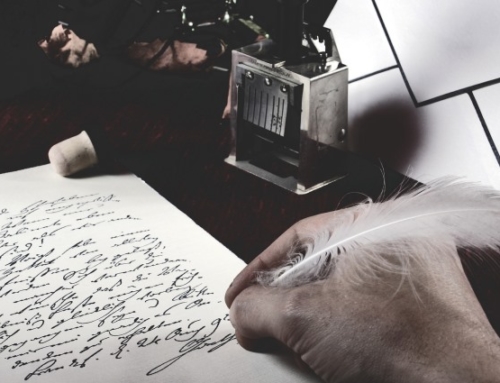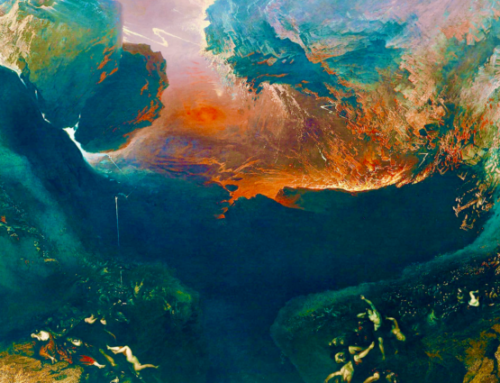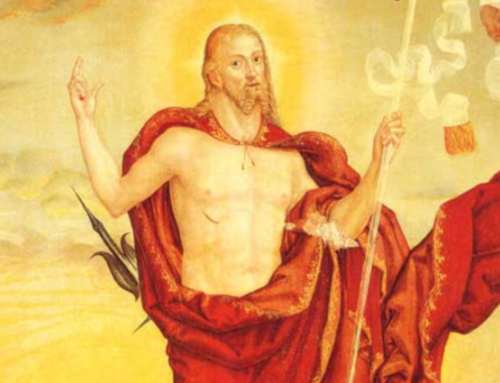 On Tuesday of this week, the second-largest class in the history of Wyoming Catholic College arrived on campus, most of them with their parents. The new students are a wonderful-looking group, enthusiastic and full of spirit. After a week of preparation, they leave this weekend for the twenty-one-day trip into the Wind River Mountains that is a signature of our program.
On Tuesday of this week, the second-largest class in the history of Wyoming Catholic College arrived on campus, most of them with their parents. The new students are a wonderful-looking group, enthusiastic and full of spirit. After a week of preparation, they leave this weekend for the twenty-one-day trip into the Wind River Mountains that is a signature of our program.
When I welcomed the freshmen and parents on Tuesday afternoon, I reminded them of the four conditions of hope that Thomas Aquinas cites: what is hoped-for must be something in the future, not something already possessed; it must be something good; it must be arduous and difficult to attain; and it must be possible, since no one seriously hopes for impossible things. These conditions apply to the whole education they are undertaking, not just to their initiation in the wilderness. In its difficulty, it will require of them all they have, but, of course, what they have will expand in capacity the more they learn.
Several weeks ago, I wrote about “the long game” in education, and I am reminded this week of the personal hope we have for each student who submits to the curriculum at Wyoming Catholic College—that it will not expend itself in the first few months or years after graduation. We want it to continue to unfold, decade by decade, continuing to enlarge the former student’s perspectives as his or her experience deepens.
Our hope for this education is also more than personal because it addresses the problems of the culture in ways that establish a better framework of thought and re-center the world morally. We despair if we think that the situation of our times is irreversible and that nothing better can come. Perhaps we need to think in terms of centuries. In The New Atlantis, written 400 years ago, Francis Bacon conceived of technological accomplishments that are only now being realized; in this and other works, he laid the philosophical groundwork for much of what has happened since in the sciences. Doing so required amending the religious assumptions that people had and overturning the philosophical authority of Aristotle. Perhaps intentionally, perhaps not, his thought and that of other early moderns paved the way for the curious blend of materialism and neo-Gnosticism in the world we now inhabit.
The best of contemporary Catholic thought does not simply reject the modern world, but incorporates what is best in modernity (who would want to give up modern medicine?) and harmonizes it with deeply traditional understandings in new and appealing ways. When T.S. Eliot wrote The Waste Land in 1922, he galvanized the literary world; he was at the very cutting-edge of the “modernist” movement—a poetry that was fragmentary, gnomic, full of obscure allusions. Everyone of importance read it, and it was only gradually that Eliot’s poem began to appear as a profound, prophetic attempt to recover spiritual meaning and restore the lost tradition. Like Bacon, but with a different emphasis, he thought toward the future. By now, almost a century later, it is possible to see The Waste Land as one of the great conservative classics of the 20th century. After the devastations of Marx, Darwin, Nietzsche, and Freud, Eliot’s career as a poet turned many minds back toward Christian orthodoxy.
Catholic colleges need to take Eliot’s cue about making the oldest things new. Our task is to make the essential freshness of the tradition appear. Those in the culture who now drift into excesses and errors because of prevailing opinion should be able to see the haleness of the perennial alternative. “By their fruits shall you know them.” What we teach, what we live, must be a clear alternative to the distress that accompanies the loss of the good of the intellect and the growing misery that follows the pursuit of self-gratification.
This is truly education’s long game: How it is that we begin to change the culture itself back toward spiritual spaciousness and possibility. This is where our true efforts need to be directed. We need to undertake the effort of thought with real hope. Although it is arduous and although its full achievement lies in the future, this effort is the greatest good we can bring about as a college. And it must be possible, as our tradition itself reminds us. Dante had Virgil as his guide in the Divine Comedy—and why? To remind him that a poet could write a poem as great as the Aeneid: Virgil had done it. The great books we read and the Church that continues to sustain us after 2000 years give us more than enough reason for hope.
Books on the topic of this essay may be found in The Imaginative Conservative Bookstore. Republished with gracious permission from Wyoming Catholic College’s Weekly Bulletin (July 2016).







What a wonderful little piece. Thank you for writing it.